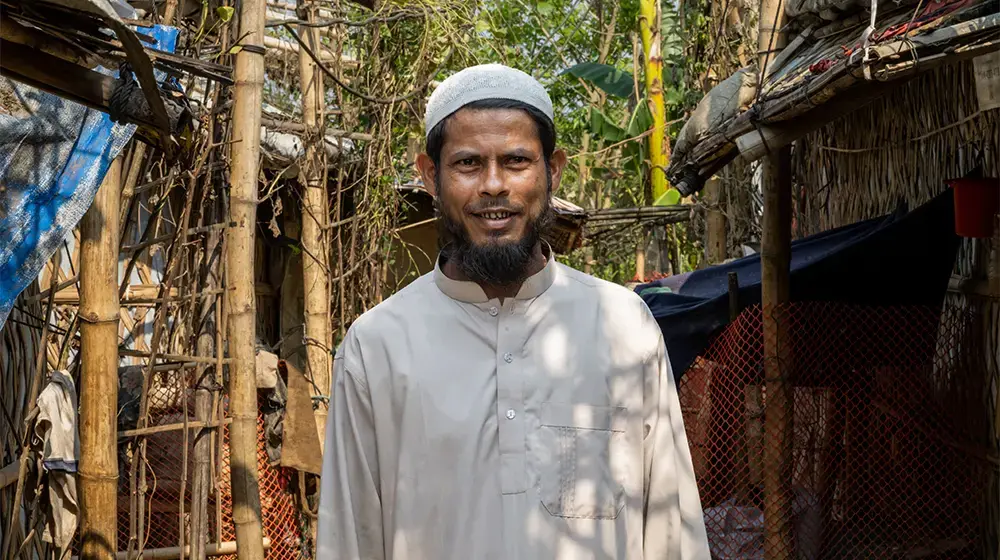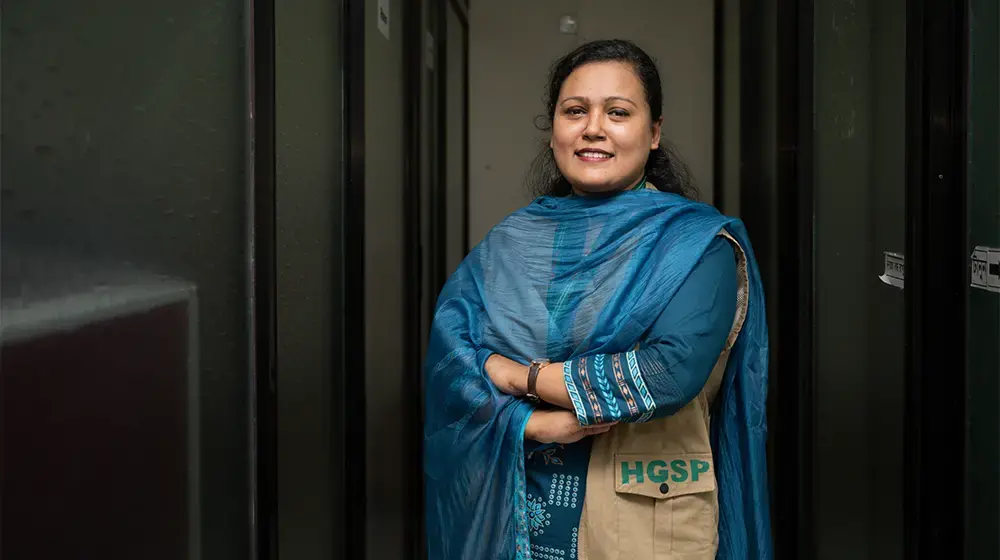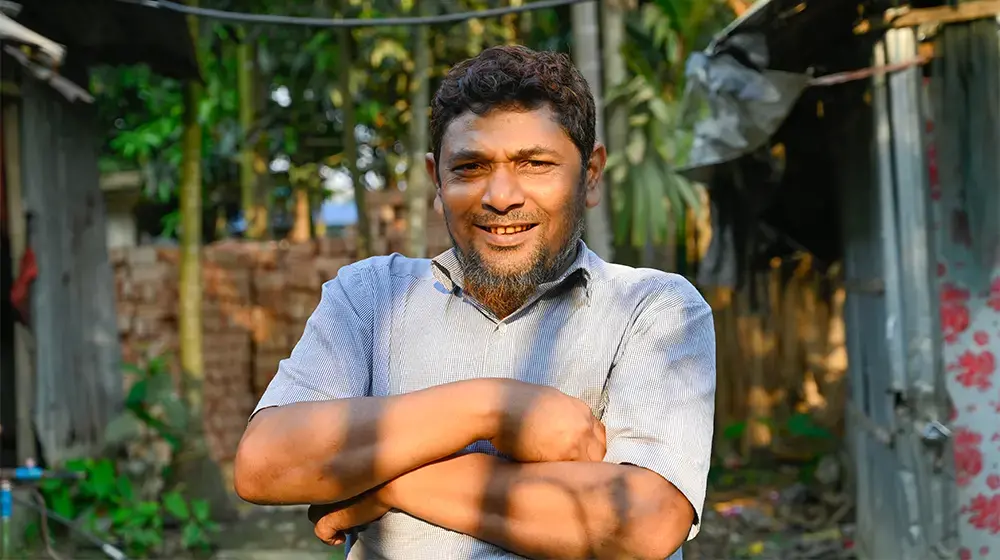August 25, 2018, marks one year since violence erupted in Myanmar’s Rakhine State, triggering the massive Rohingya exodus to neighbouring Bangladesh. As the crisis continues with no immediate end in sight, Asa Torkelsson, Representative of the United Nations Population Fund (UNFPA) in Bangladesh, emphasises how crucial it is to expand and sustain health and life skills services for Rohingya women, girls and youth to locate opportunities amid challenges.
A year ago this month, renewed violence in Myanmar’s Rakhine State ripped 14-year-old *Fathema’s family apart. Her father and brothers were killed, her widowed mother became the head of a household on the run, escaping with Fathema and her other daughters to the crowded Rohingya refugee camps in neighbouring Cox’s Bazar, Bangladesh.
Given the atrocities experienced by so many thousands of Rohingya women and girls, the immediate humanitarian response focused on providing urgent medical attention and health supplies, along with psychosocial counselling for traumatized survivors, including those who became pregnant through rape.
Much of this help came through Women Friendly Spaces in Cox’s Bazar – the “shanti khana” or “homes of peace” - which have long provided a safe space for women and girls to avail of essential services, or simply to bond with others, as they seek to heal. The help and information provided there have also inspired many Rohingya women to become community volunteers themselves.
40-year-old Zarina* recalls, “In Myanmar, I didn’t know child marriage was bad. Here, through the caseworkers at the Women Friendly Space, I’ve learnt about it and other issues like domestic violence. My eyes are now open, my brain is working. I realise that child marriage is bad for health, it robs a girl of her youth and her life. I want to end child marriage.”
Zarina and other community volunteers are also seeking to improve a key health indicator. Currently, only about one in five pregnant women in the refugee camps will give birth in a proper health facility, despite the availability of dozens of trained midwives and other personnel. Sometimes they are prevented by their husbands – or, in the case of women who have been raped, they fear stigma and discrimination from the wider community.
Community volunteer Nasreen reaches out to pregnant refugees, urging them to get health checks and give birth with the assistance of UNFPA-trained midwives. Image: UNFPA Bangladesh/Allison Joyce
“Giving birth is like a war, it can be so challenging,” said 35-year-old Nasreen*, another community volunteer. “Every month I help four to five women to the facility here for deliveries. If girls or women don’t willingly want to go to the delivery services, I convince them to access health points and ensure safer pregnancy and childbirth.”
Back in Myanmar, Fathema would probably have been married by now, and, at 14, may already have become a mother. But, just as Zarina and other women were provided with key information about life and love, a new youth-focused initiative at these Women Friendly Spaces is transforming them into learning centres for Fathema, her sisters and other young persons, teaching them about the spectrum of gender equality and rights through the prism of sexual and reproductive health and well-being.
Rohingya adolescents enjoy themselves at a UNFPA Women Friendly Space where they learn life skills through an innovative module specially designed for them. Image: UNFPA Bangladesh/Allison Joyce
The module – adapted from the global Gender Equity Movement in Schools (GEMS) prototype – underscores how crucial it is to impart life skills education as early as possible, to better equip young persons to navigate the often difficult choices faced during the transition from childhood to adolescence to adulthood, including issues such as gender equality, pubertal changes and hygiene, relationships and conflict management.
For young girls in particular, long constrained by the complexities of patriarchy and sexism, the sessions can be liberating, showing them how they should be in charge of making decisions about their own lives – including if and when to marry and to whom, whether to have children and how many, and how to better address and protect themselves from gender-based violence and child marriage.
These concepts can be overwhelming for any young person, and all the more so for those raised in particularly conservative environments. But by bringing such issues to the forefront in a gentle, non-threatening way, multiple points of view can be discussed and debated openly and safely.
Fathema learnt so much from the sessions at the Women Friendly Space, she's become a volunteer herself. "The first people I talk to are my parents," she said. "And then I talk to other young people in my area. I knew nothing about the changes that happen to girls. Now I know how to cope, and I can help other girls as well."
Putting all these lessons into practice will not be easy for Fathema and her peers, just as it hasn’t been for Zarina and older refugee women, but introducing them to these ideas is an important first step towards moving from disempowerment to empowerment, even in this challenging context.
As humanitarian actors strategise a long-term response to this protracted crisis, there must be a strong emphasis on the interactions between the obvious pillars of aid – food, water, health, sanitation, shelter and protection – and the special needs of women, girls and young persons, including safer pregnancy and childbirth; the prevention of, and response to, gender-based violence; and education and life skills for children and youth who will, in all probability, become adults in the camps of Cox’s Bazar.
“Initially I faced violence from my husband because I had four daughters which he wasn’t happy about,” Zarina said. “But I now teach my husband and others about gender equality.”
---
*Not their real names




